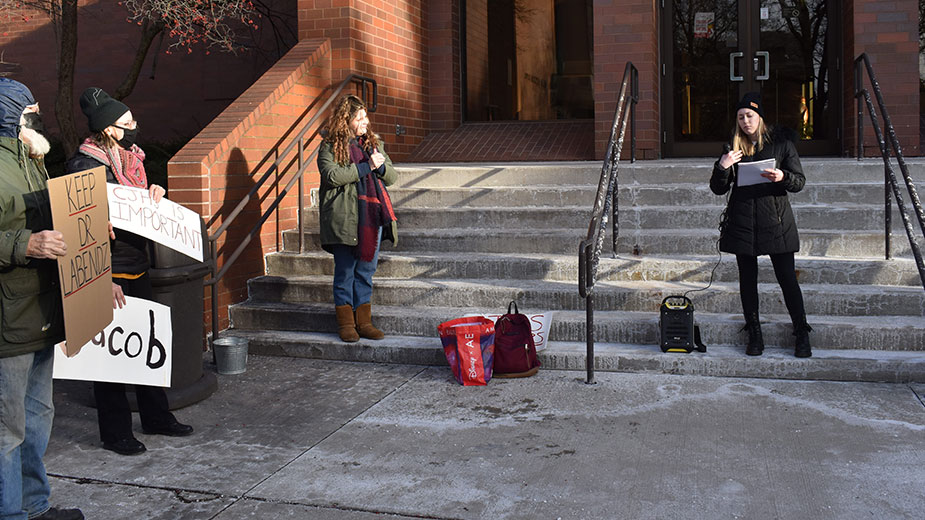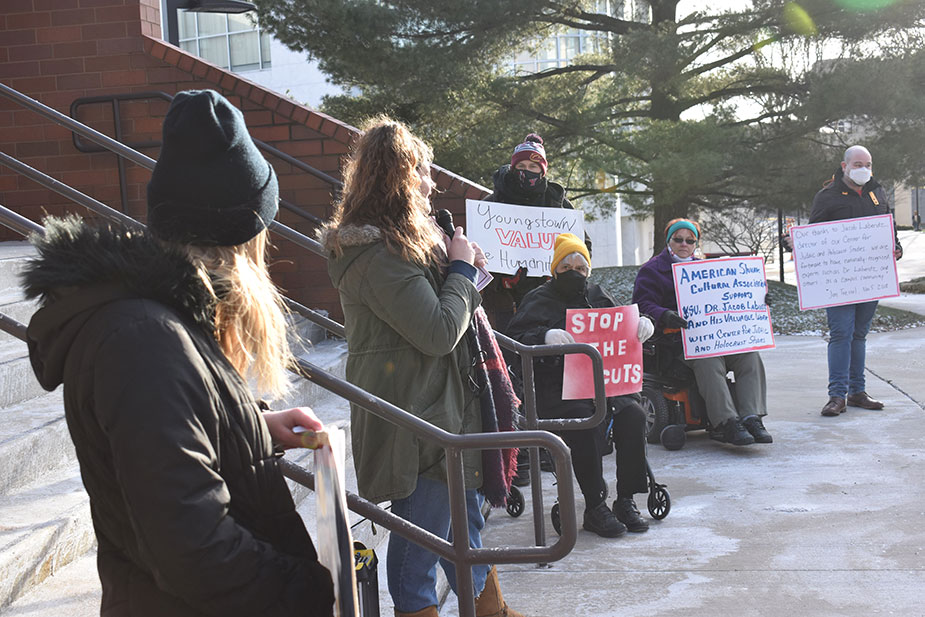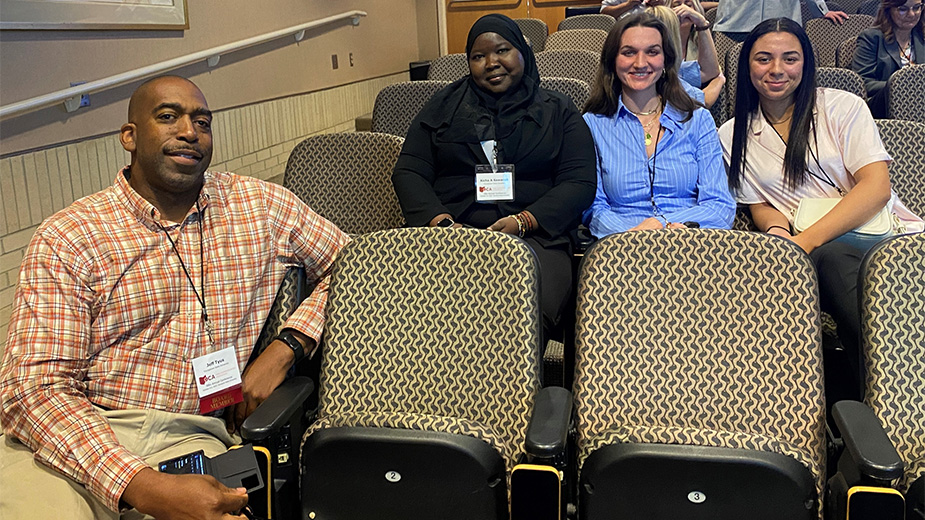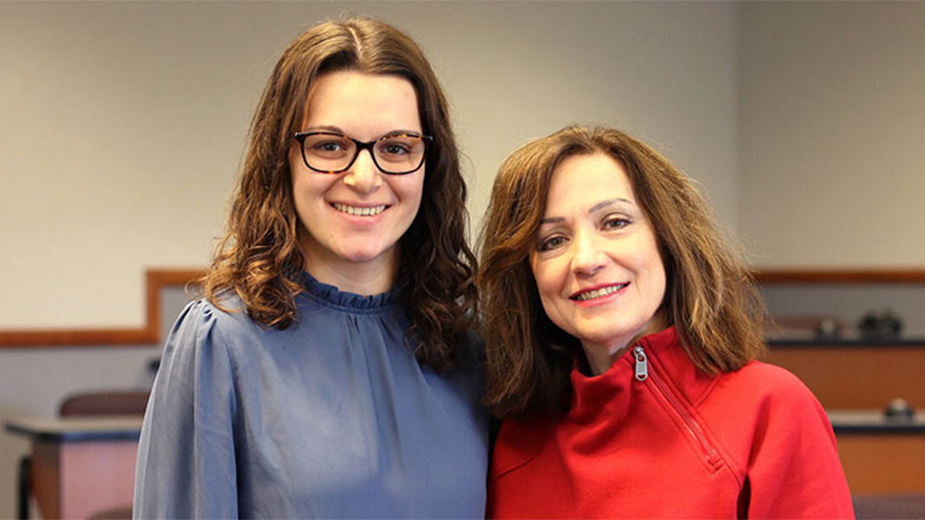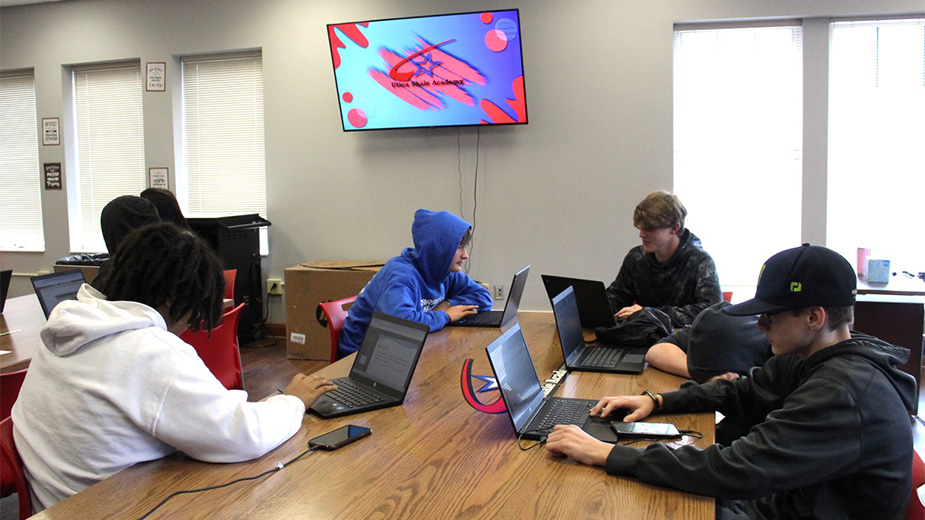Dozens Rally to Support YSU Jewish Studies Professor, Center
YOUNGSTOWN, Ohio — Roughly two dozen Youngstown State University students, faculty and other supporters of assistant professor Jacob Labendz turned out for a media event Wednesday morning to urge the university to reverse course on its plans to not renew his contract.
Labendz, an assistant professor of history and Jewish studies and director of YSU’s Center for Judaic and Holocaust Studies, was among nine full-time faculty members who were informed in November that their contracts would not be renewed for the 2022-23 academic year. His supporters argued that not renewing his contract would leave the center without anyone qualified to run it.
Brooke Bobovnyik, a second-year graduate student in YSU’s history program, and Alexis Heldreth of Canfield, a 2021 YSU graduate, delivered a packet compiling 903 signatures and letters to the office of Brien Smith, YSU provost and vice president for academic affairs.
“We appreciate the passion and commitment of the students and others who are advocating for the Center for Judaic and Holocaust Studies,” YSU spokesman Ron Cole said in an email issued following the event. “The Center for Judaic and Holocaust Studies and its activities will continue. The future leadership of the Center remains under consideration.”
Gallery images include photos from the rally Wednesday morning.
Both women as well as other supporters addressed the crowd assembled in front of Tod Hall before they delivered the packet.
“The value of Dr. Labendz’s position at YSU extends far beyond quantifiable data,” Heldreth said. “His presence and expertise are an asset to Youngstown, especially as cultural and religious minority groups face growing threats from white nationalist movements in a world still reeling from its legacy, in a climate that weaponizes the memory of the shoah to make … political and personal gains.”
Heldreth, who praised Labendz as a personal mentor, cited an email from YSU President Jim Tressel following a discussion Labendz led in the wake of the 2018 massacre at the Tree of Life synagogue in Pittsburgh. Tressel said YSU was “fortunate to have nationally recognized experts” like him to help the community come to “a blurry understanding of the world around us, especially in these times when senseless acts of violence seem to be an almost daily occurrence,” she said.
Bobovnyik cited statistics from a national survey reported by The Guardian last year. The survey indicated that nearly half of adults ages 18 to 39 could not name a single concentration camp or ghetto established during World War II, and that 23% of respondents believed the Holocaust was a myth.
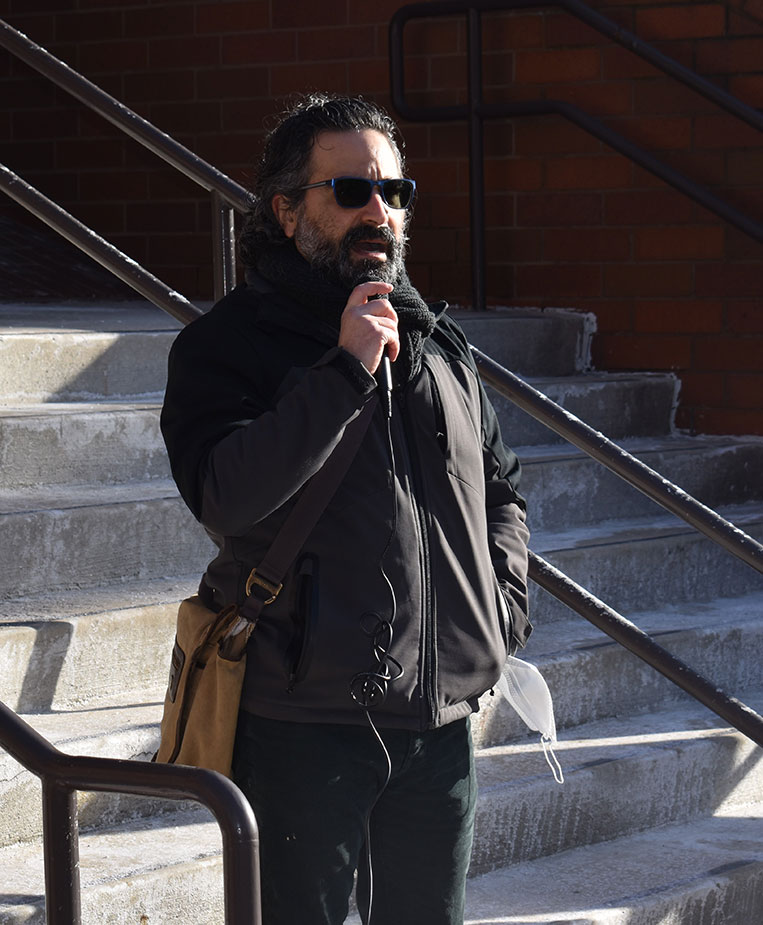
She acknowledged the Holocaust was “hastily discussed” in her high school history courses and had little knowledge of the Holocaust and the events that preceded it until taking Labendz’s course during her junior year at YSU. During the course, she “gained a better understanding of the worst event in human history,” she remarked.
“If there is no education or an understanding of the Holocaust, the past is doomed to be repeated,” she said. “If there’s no education or an understanding of the Holocaust, the millions of victims – some of whom remain alive – are forgotten. None of this should be allowed to occur.”
Adam Fuller, associate professor of politics and international relations, characterized getting rid of his colleague as “the worst managerial decision since the Boston Red Sox traded Babe Ruth to the New York Yankees.” Jewish and Holocaust studies centers around the country “could take a page out of the book” that Labendz has written.
“It really is one of the only centers for Jewish studies where we have civil discourse between people who vehemently disagree,” he said. He and Labendz “disagree on virtually everything” related to politics, Jewish identity and lessons of the Holocaust, but do so in a civil manner, and students have gained from those discussions.
Loretta Ekoniak, president of the American Slovak Cultural Association of the Mahoning Valley, pointed to the role that Labendz played in hosting a traveling exhibit on Slovak Jews during World War II that proved too expensive for her organization to afford.
“Talk about jumping in feet first,” she said. His organization’s assistance included showing films and bringing in a speaker from Purdue University.
Labendz, who also was among those attending, expressed his appreciation for the group’s efforts.
“It is a rare privilege to be able to run an organization like this even for five years. It has been an honor of a lifetime,” he said.
Labendz said he has an appeals process to go through at YSU this month or next month, but he also has to apply for other jobs in case that effort is unsuccessful.
“The job market is not very good right now and I’m competing when I apply with hundreds of my best friends and fellow scholars whom I deeply respect,” he said. “So my prospects may not be great. This may be the end of my career.”
Bobovnyik said she was “feeling hopeful” about the effort to convince the university to retain Labendz.
“Hopefully, our work makes a difference. Even if it doesn’t, it was worth a shot,” she said.
Pictured at top: Brooke Bobovnyik addresses those gathered as Alexis Heldreth and others stand by.
Copyright 2024 The Business Journal, Youngstown, Ohio.
